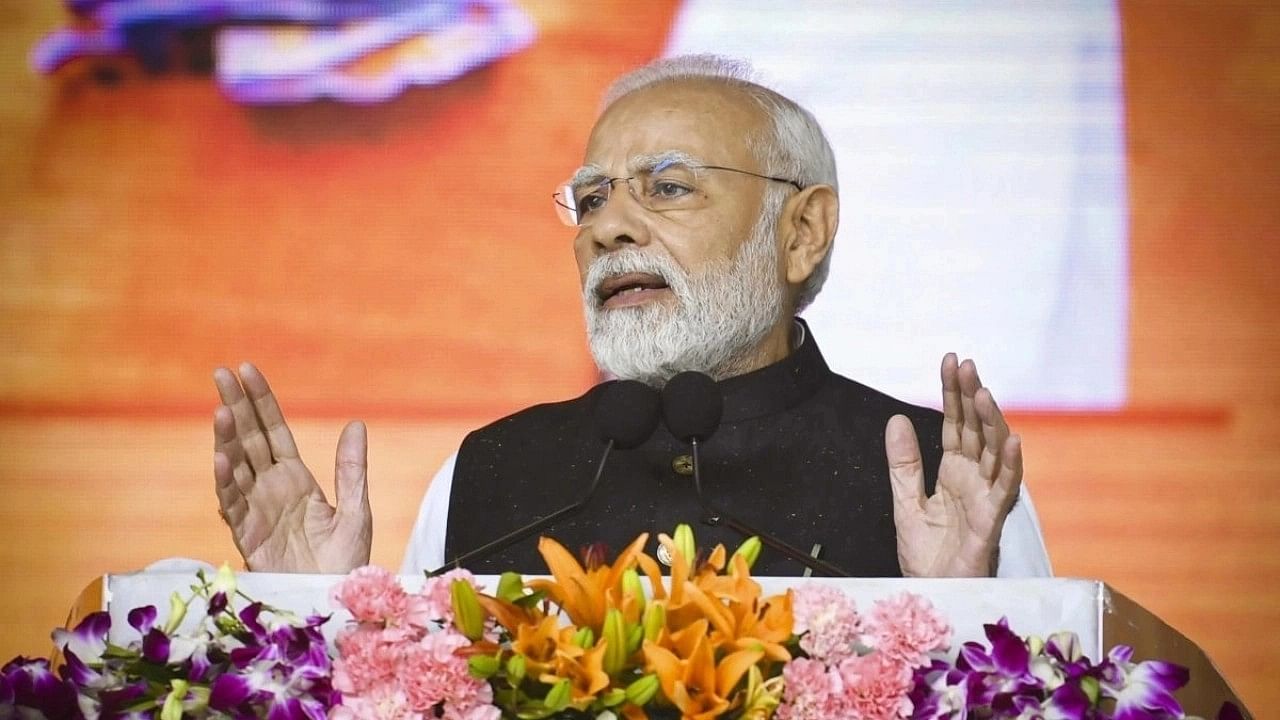
Prime Minister Narendra Modi.
Credit: PTI Photo
New Delhi: Prime Minister Narendra Modi on Friday made oblique reference to the widening conflicts in the West Asia and the ongoing Russia-Ukraine war, saying the two regions were crucial for the global economy and energy security.
His comments came amid fears of further escalation of conflict in the West Asia if Israel were to retaliate and attack Iran, potentially its nuclear and oil facilities. This, analysts fear, could fuel a surge in energy prices and draw the region into a wider conflict.
Speaking at the 3rd edition of the Kautilya Economic Conclave here, Modi on the domestic front committed to continuing structural reforms to help India become a developed nation by 2047.
"This conclave is happening at a time when the two big regions of the world are close to war-like situations. These two big regions are crucial for the global economy as well as energy security," he said without naming any country.
India is more than 85 per cent dependent on the import of crude oil, which is converted into fuels like petrol and diesel, and about half of its gas needs. A bulk of these come from the Middle East, and in scenarios of Israel-Iran getting into prolonged conflict, the supplies could be impacted.
"In the midst of these big global uncertainties, we are all here witnessing the Indian era, we are discussing India. This shows the confidence in India... Whether it is science, technology or innovation, India clearly is at a sweet spot. Reform, perform and transform motto we are taking decision to take India forward," Modi said.
He said India today is the fastest-growing major economy, and in terms of GDP, India is the fifth largest economy.
The NDA government, in its third term in office, has taken "bold policy changes" and measures to boost jobs and skilling, and focus on sustainable growth and innovation to help India continue to move on the high-growth path.
In the first three months of the government, it has taken decisions on schemes, involving Rs 15 lakh crore investment, he said.
"Today, the Indian economy is passing through a very big transformational change. On the basis of strong economic fundamentals, the Indian economy is on the path of sustained high growth. Today, India is not preparing only to reach the top but to remain at the top. Every sector offers immense opportunities," Modi noted.
He said the global leaders and financial experts are optimistic about India's growth. Investors believe that it is the right time to invest in India.
"It is not a coincidence. Rather, it is the result of the reforms that have happened in India in the past decade," Modi said.
The Prime Minister said 111 companies have registered on the portal for the PM Internship scheme. This scheme, announced in the Budget, is aimed at helping the youth to get internships in companies.
India is setting up semiconductor plants, and soon, the 'Made in India' chips will be accessible to the world, he said.
To boost manufacturing, India brought a production-linked incentive (PLI) scheme, which attracted investments worth Rs 1.25 lakh crore.
'Inclusive spirit' is yet another notable factor of India's growth story, Modi said, adding that the growth is accompanied by inclusion.
As a result, he added that 25 crore people have moved out of poverty over the last 10 years.
Listing his government's achievements, Modi said the government has strengthened the banking system, rolled out GST, introduced the Insolvency and Bankruptcy Code, opened up mining and defence sector for private investment, further liberalised FDI and reduced compliance burden.